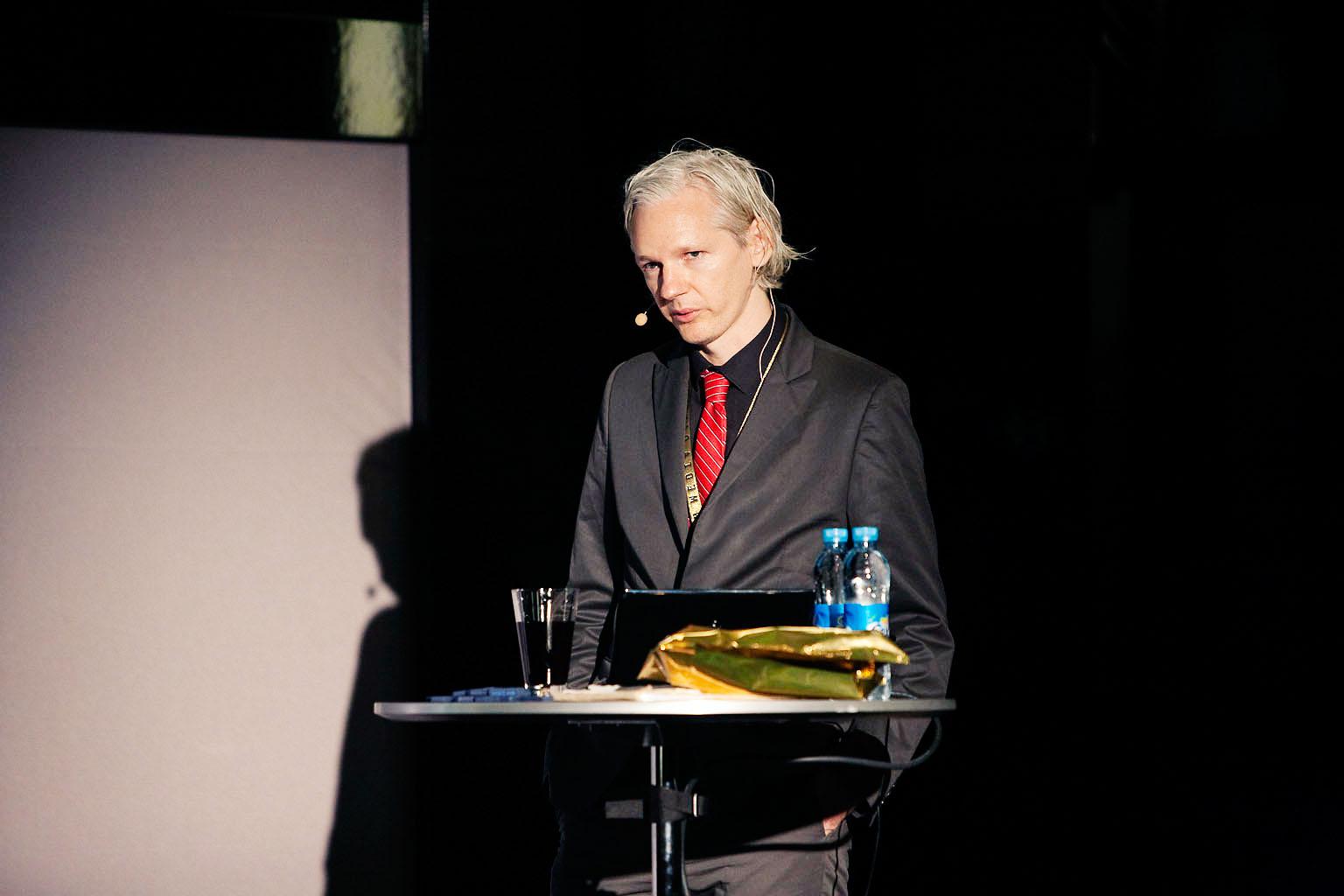Ecuador grants Assange asylum; diplomatic row with United Kingdom intensifies
Julian Assange was granted asylum at the Embassy of Ecuador in London. (Photo by New Media Days via Wikimedia Commons.)
Julian Assange has been awarded asylum in Ecuador, but, at the moment, he has no way to get there.
Assange fled to the country’s embassy in London months ago, where he has remained despite protests from the British government. The U.K. is seeking to extradite him to Sweden, where he is under investigation for sexual assault.
Assange has said he fears being extradited from Sweden to the United States, eventually, to face charges related to his release of diplomatic cables via Wikileaks. British officials say they have no choice but to extradite him, under the terms of their legal agreements with fellow European Union member Sweden.
The U.K. has said if Assange leaves the embassy, he will be arrested. They’ve even threatened to invoke a little-known 1980s-era law that, they say, allows them to enter the grounds of the embassy and arrest Assange.
That’s prompted a further diplomatic spat with Ecuador, which says it fears Assange’s human rights would be violated if he were extradited.
“We believe that his fears are legitimate,” Ecuador’s foreign minister, Ricardo Patino, said in a live address from that nation’s capital.
According to the BBC, Assange called Thursday’s decision an “historic victory,” and called on the United States to end its investigation into Wikileaks.
“It was not Britain or my home country, Australia, that stood up to protect me from persecution, but a courageous, independent Latin American nation,” Assange said to the BBC.
Meanwhile, human rights groups criticized Ecuador’s own record on protecting the rights of its citizens. According to the Guardian, “Padraig Reidy, news editor of Index on Censorship, which campaigns for freedom of expression around the globe, said Ecuador has been “more than willing to use the law to pursue opposition voices.'”
Reidy specifically cited an example from last year when a newspaper editorial page editor and several other member’s of the newspapers board were arrested and jailed for an article that “described the president as a dictator and accused him of ordering his forces to open fire on a hospital,” the Guardian reported. They were later pardoned.
“Anyone can be put in prison for speaking their mind. In the western world we have a civil system that means you can be fined, but people in Ecuador can face jail for airing their opinions,” Reidy said. “When the president personally pursues these cases then we do have to worry.”
Assange has said he will make a speech from the steps of the embassy on Sunday. U.K. officials have said if he does that, he’s liable to be arrested. Assange also announced, via Twitter, that if the U.K. won’t allow him safe passage out of the country, he’d appeal the ruling to the International Court of Justice.
